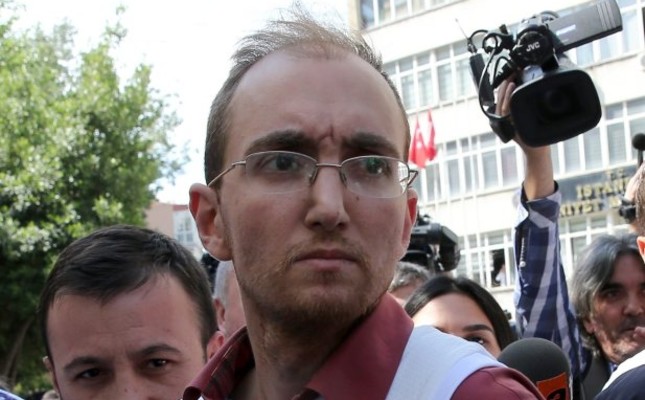Serial Prosecutor
Last week, The Intercept published, the lead prosecutor in the murder trial of Adnan Syed. In 2000, Syed was convicted of murdering his former girlfriend, Hae Min Lee, and is currently serving a life sentence. The state of Maryland to submit its response to Syed’s request for permission to appeal the denial of post-conviction relief. The Maryland Court of Special Appeals will issue its ruling at a later date.


A Maryland prosecutor said Tuesday that the evidence is 'overwhelming' that Syed was properly convicted and sentenced to life in prison.
The case was covered by “Serial,” the popular podcast hosted by Sarah Koenig that ran last year. Here is Part II of the interview with Urick. The following has been edited and condensed for clarity. The Intercept: Why was the DNA collected at Hae’s murder site not all analyzed and submitted into evidence? Kevin Urick: I don’t recall any DNA evidence in the case. The body was out in the field for, what, five weeks? I don’t know how well DNA stands up at that point.
We had no DNA evidence at trial. That was 1999. DNA had been accepted in Maryland as valid scientific evidence by that time. If anything in evidence had shown promise for DNA testing, that is, there appeared to be biological matter that could have come from the crime, I am sure we would have asked for it to be tested.
TI: The University of Virginia’s Innocence Project has announced that they will be pushing for DNA from the crime scene to be tested. KU: Like I said, I don’t recall there being any evidence being submitted for DNA testing by me or Cristina [Gutierrez, Adnan Syed’s lawyer]. In strangulation cases, where there is no murder weapon, no blood. Note: Blood was found on Hae’s shirt and was analyzed for DNA. The blood belonged to the victim, according to the medical examiner’s testimony—likely due to a pulmonary edema, i.e.
A buildup of fluid in the lungs that occurs when the heart fails to pump blood through the veins.] It is really hard to find DNA that can be linked to the crime. It’s possible that they are trying to pull DNA off evidence collected around the murder site, like empty bottles or some trash, and test that for DNA.
Note: We reached out to the Innocence Project at the UVA School of Law, but they declined to be interviewed. In a previous interview, its director, what is likely to be tested, including material found on the body and at the crime scene.] TI: Let’s talk about Anne Benaroya, Jay Wilds’ attorney, for a moment. Can you walk us through that situation? There was an implication of misconduct, because you recommended her to Jay to represent him in the plea deal? KU: Jay had committed a crime, which he had not yet been charged for. Second, he was a very important witness in the case, and it would be necessary to work on some sort of plea agreement.
Crazytalk Animator 2 Cracked Coconuts. I don’t know if the police suggested it or we suggested that he talk to a public defender. But he talked to some public defenders, and they wouldn’t represent him, because he was not charged with a crime yet. He went to several attorneys —they wouldn’t represent him unless he paid them a fee. Jay did not have the money to pay for a private attorney. At that time, I had a case with Anne Benaroya. I knew from talking with her throughout the course of the case that she had been a public defender. She had a keen interest in constitutional rights.
I told her about Jay. I said, ‘Can you think of any place I can tell this guy to go, because he wants representation.
He’s not comfortable talking to the state without someone advising him about what’s best for him.’ Prosecutors can’t advise a criminal defendant what’s in their best interest. They need independent counsel. She volunteered to talk to Jay to tell him his options of where he could go for representation. So I told Jay, there is this attorney who was willing to talk with him about that, and I asked would he like to meet with her?
Anne met with him. She came back to us and said basically that she found him a meritorious person who needed representation, and she was going to volunteer to handle it, which I think was admirable, commendable, and that’s what attorneys should do. I see it all the time. Attorneys will say this guy needs representation, and someone will step forward to serve that function. You have rules that we’re supposed to do that.